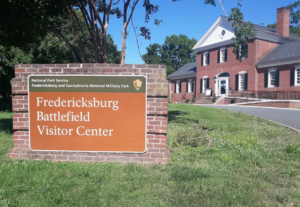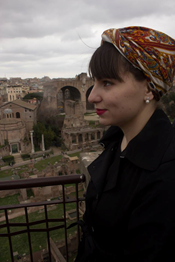The Appalachian Conservation Corps and Harriet Tubman Underground Railroad National Historical Park are hiring a Chesapeake Gateways Ambassador intern to help share the incredible stories of the park through an equity lens. This position is open to young adults aged 18-30, or 35 if veteran, and is ideal for recent graduates of communications, history, education, etc. The Park is looking for candidates local to the area.
The intern will develop and present inclusive interpretation materials, write digital media resources and host community programs. This 50-week position will begin September 18th, 2023, and is based out of Church Creek, MD. For more information and to apply, visit this website.
 This fall Fredericksburg & Spotsylvania NMP will be hosting a
This fall Fredericksburg & Spotsylvania NMP will be hosting a 

